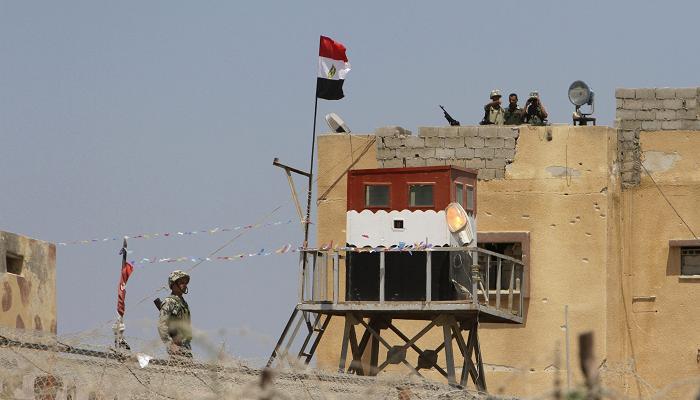Latest NEWS
- Aswat Masriya, the last word
- Roundup of Egypt's press headlines on March 15, 2017
- Roundup of Egypt's press headlines on March 14, 2017
- Former Egyptian President Hosni Mubarak to be released: lawyer
- Roundup of Egypt's press headlines on March 13, 2017
- Egypt's capital set to grow by half a million in 2017
- Egypt's wheat reserves to double with start of harvest -supply min
- Roundup of Egypt's press headlines on March 12, 2017
Rafah crossing to be opened for two days in both directions

Egyptian soldiers stand guard on the border between Egypt and the southern Gaza Strip, near Rafah August 6, 2012.Ibraheem Abu Mustafa/Reuters
By Hend Kortam
CAIRO, Dec. 2 (Aswat Masriya) - The Rafah border crossing which connects Egypt and the Gaza Strip will be opened on Thursday and Friday in both directions, Egypt's state news agency MENA said on Wednesday.
A source told MENA that the crossing will be opened for people who are stuck on either side and for humanitarian cases. Gaza measures around 360 square kilometres and is home to 1.8 million people, making the enclave among the world's most densely populated areas.
The Rafah border crossing, which is the main entry and exit point to the besieged Gaza Strip, has been mostly closed since October 2014 when a militant attack in North Sinai left over 30 Egyptian security personnel dead.
The UN Office for the Coordination of Humanitarian Affairs (OCHA) said in a weekly report in November that exceptions to closing the "Egyptian-controlled" crossing were only made on "37 days of partial openings," since October 2014.
"Authorities in Gaza indicate that over 25,000 people with urgent needs, including around 3,500 medical cases, are registered and waiting to cross," OCHA added.
Gaza is run by the Islamic Resistance Movement (Hamas) which took over the strip in 2006 after winning the Palestinian legislative elections. Since 2007, Gaza has been under a land, air and sea blockade.
The difficult living conditions in the enclave were worsened after destruction caused by 50 days of Israeli military operations in the summer of 2014.
Last year, Egypt and Norway co-hosted a donors conference on the reconstruction of Gaza, raising over $5 billion. However, the international efforts to raise money for reconstruction have had little effect on the ground.
According to the World Bank, which is monitoring the delivery and disbursement of pledges, by August 2015, only 35 percent of pledges had been disbursed.
In September 2015, the Egyptian army began flooding the underground smuggling tunnels that supplied essential goods to the besieged territory.
Egypt has been fighting a growing militancy in the North Sinai region. Destroying the underground tunnels leading in and out of Gaza was one of several counter-terrorism measures the Egyptian state has adopted.
Egypt sees the tunnels as a pathway of arms and militants, forming a direct threat to the country's security.
On the other hand, goods imported to Gaza "through tunnels, especially foodstuffs, medicines, fuel, construction materials and cars, have spared the Gaza Strip the breakdown of all vital sectors," the Palestinian Centre for Human Rights said in 2013.










